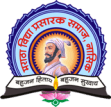Best Practice I:
Drinking water testing of college Staff and Students (Click to See)
Goal:
- To check potability of drinking water.
- To provide services to Community
- To keep students and staff healthy and physically fit for the academic work.
- The Context:
- Water used for drinking purpose is a source of many waterborne diseases.
- Prior checking is always helpful for prevention of these waterborne diseases.
- This saves health, time and money of the individual.
- The Practice:
This practice includes.
- Collection of water samples from staff and students from their home and college campus in sterile containers provided by Microbiology department of the college
- Its testing in the Microbiology lab by standard methods prescribed by APHA ( American Public Health Association) and WHO for presence of pathogenic bacteria
- Filling up of form and distribution of quality certificate.
- Suggestions and recommendations are given for treatment of water if sample is found positive.
- Evidence of Success:
- This practice developed awareness about drinking water quality among staff and students.
- Since no fee is charged ,it saved time and money of the individuals which is not affordable when done form commercial agencies.
- Practical skills and knowledge of final year students of Microbiology were improved.
- Problems Encountered and Resources Required
- Additional media, chemicals and glass wares are needed when large of samples are collected, which stretch annual budget of the department.
Best Practice II
HEALTH SERVICES (Blood Group and Hemoglobin Check-up of Girl students) Click to See
Goal:
- To check health problems of girl students related to blood
- To provide services to Community
- To keep students healthy and physically fit for day to day’s work.
- The Context:
The college is proud to have high number of girl students admitted to various UG/PG programs run by it. Most of these girl students have low socio-economic status, rural and illiterate family background. These girls are in the adolescence phase of life cycle which needs higher iron intake due to excessive bleeding during menstrual cycle. This is a major cause for anemia amongst them. Low dietary intake of iron, blood loss due to Hookworm infestation and Malaria are the other causes of iron deficiency. This can adversely influence their physical wellbeing and academic performance. Considering the above, the management of our college has adopted the policy of compulsory hemoglobin and blood group check-up. Our college is committed to fulfill its social responsibility by conducting such kind of activity.
- The Practice:
This practice includes hemoglobin & blood group check-up of girl students followed by remedial measures. Estimation of hemoglobin and blood group of all girls’ of First year UG/PG admitted in the college is done every year. The detail history of each student regarding menstrual problems & other health problems is taken. Proper medicines, tonics and De-worming tablets are given to all students. The college alumni, teaching and non-teaching staff of the college, doctors from Nasik city, philanthropic individuals and organizations from and around Nasik city, generously donate iron and nutritional supplement tablets and tonics for the students. Follow-up is taken of those girls whose hemoglobin level was found to be below normal range. For improvement, problems are solved by counselling. Healthy eating habits are imbibed in students. Awareness against ill effects of junk food is also created.
3.Evidence of Success:
This practice has succeeded in developing awareness about anemia and its related illnesses. It has improved hemoglobin percentage in the anemic girl students. The girl students have been de-wormed. The blood group of every girl student has been identified. It has helped to identify Rh–ve girls. Such girls are high risk future mothers so parent counselling is done to avoid complications during pregnancy and delivery. Importance of Anti-D injection is explained to them. Sanitary napkin vending machine has been installed to provide low cost & safe sanitary napkins to the girl students. The girl students have expressed their satisfaction about the practice. Overall effect of this practice is all round development, and excellent academic performance of girl students.
- Problems Encountered and Resources Required:
Most of the girl students studying in the college have poor, rural and uneducated family background. Hence, initially, efforts have to be taken to create awareness about anaemia, Rh–ve factor of blood group. The college management has made haemoglobin check-up, blood group determination in free of cost. The practice requires the resources like sterile syringes with needles, surgical spirit, medicinal cotton, dietary iron and nutritional supplement tablets and tonics, weighing machine, height chart, distilled water and trained medical personnel.

